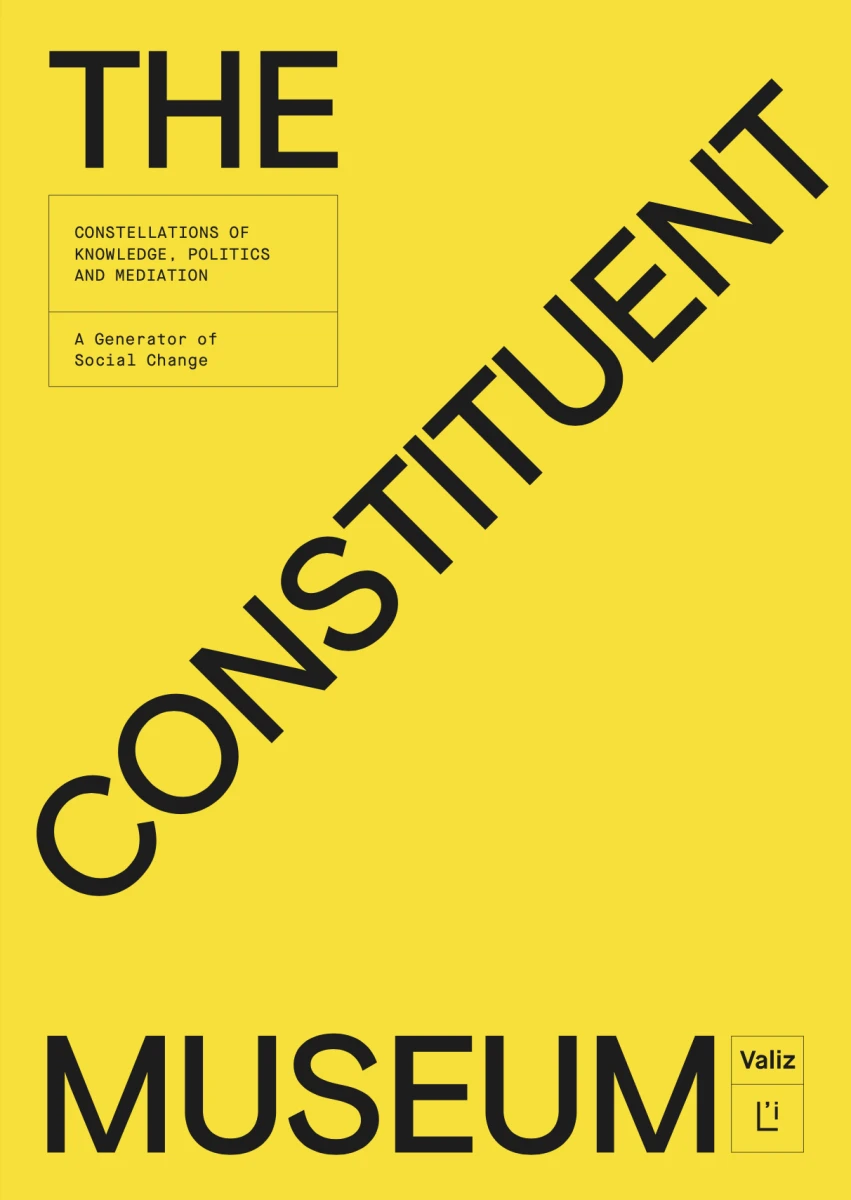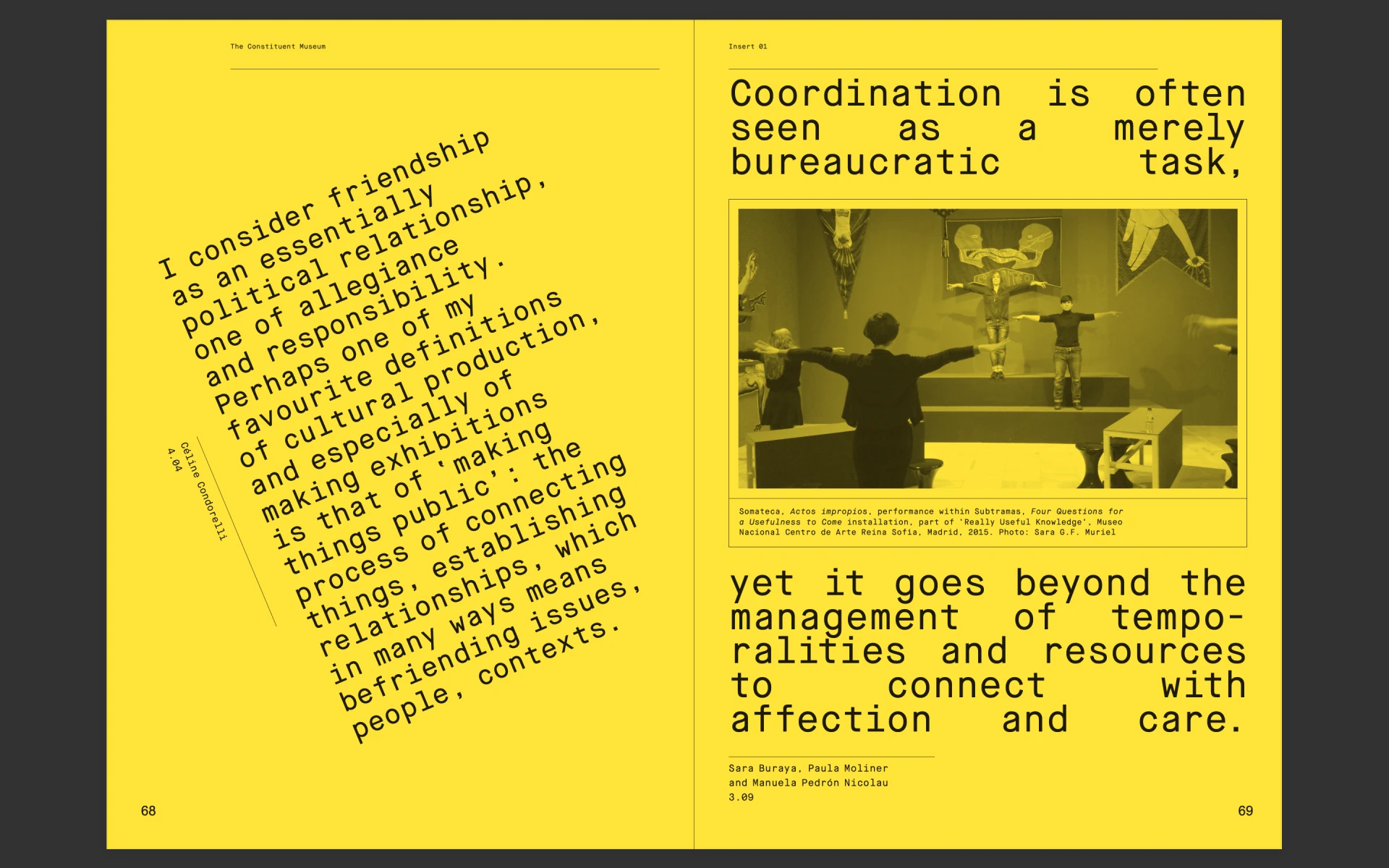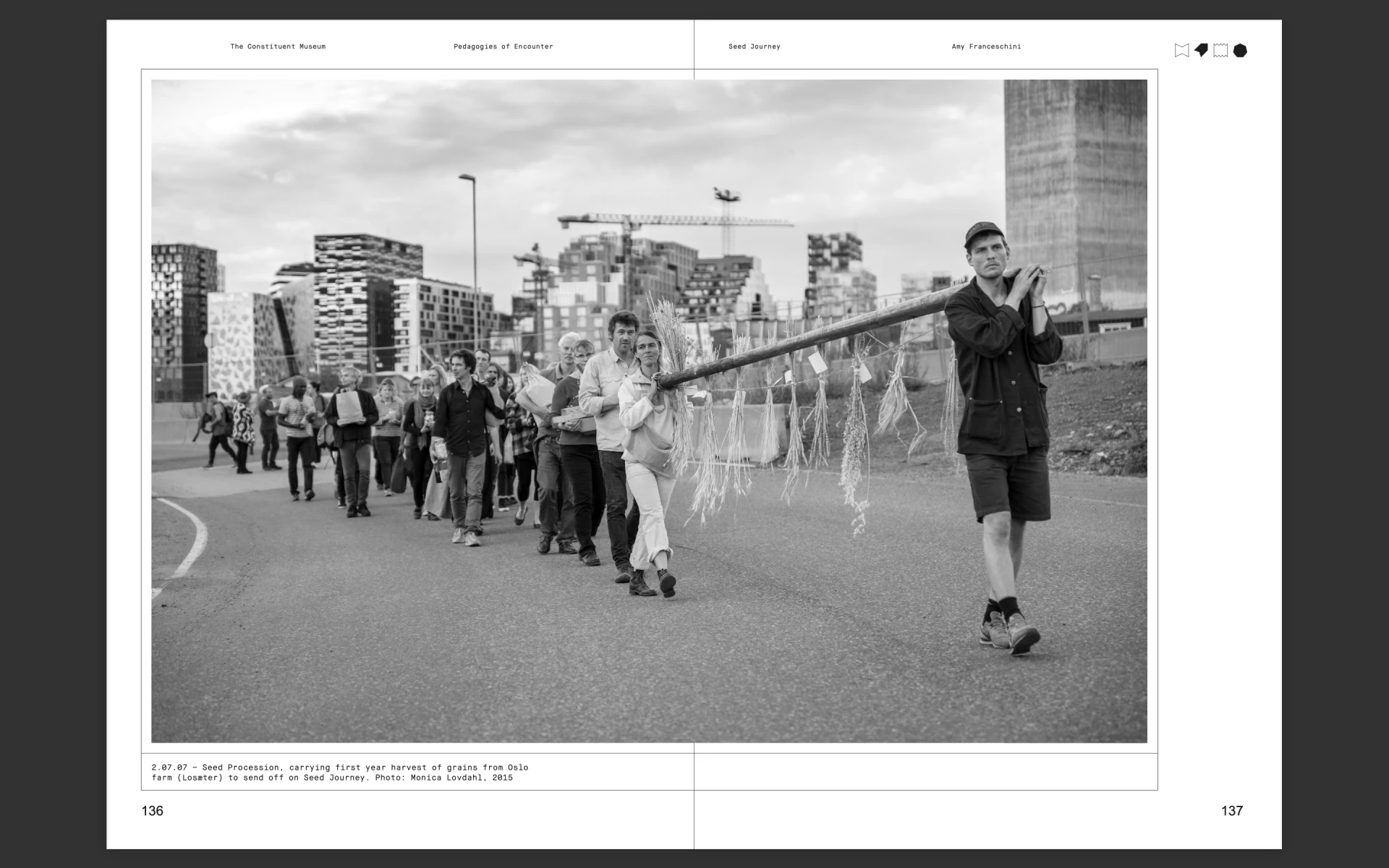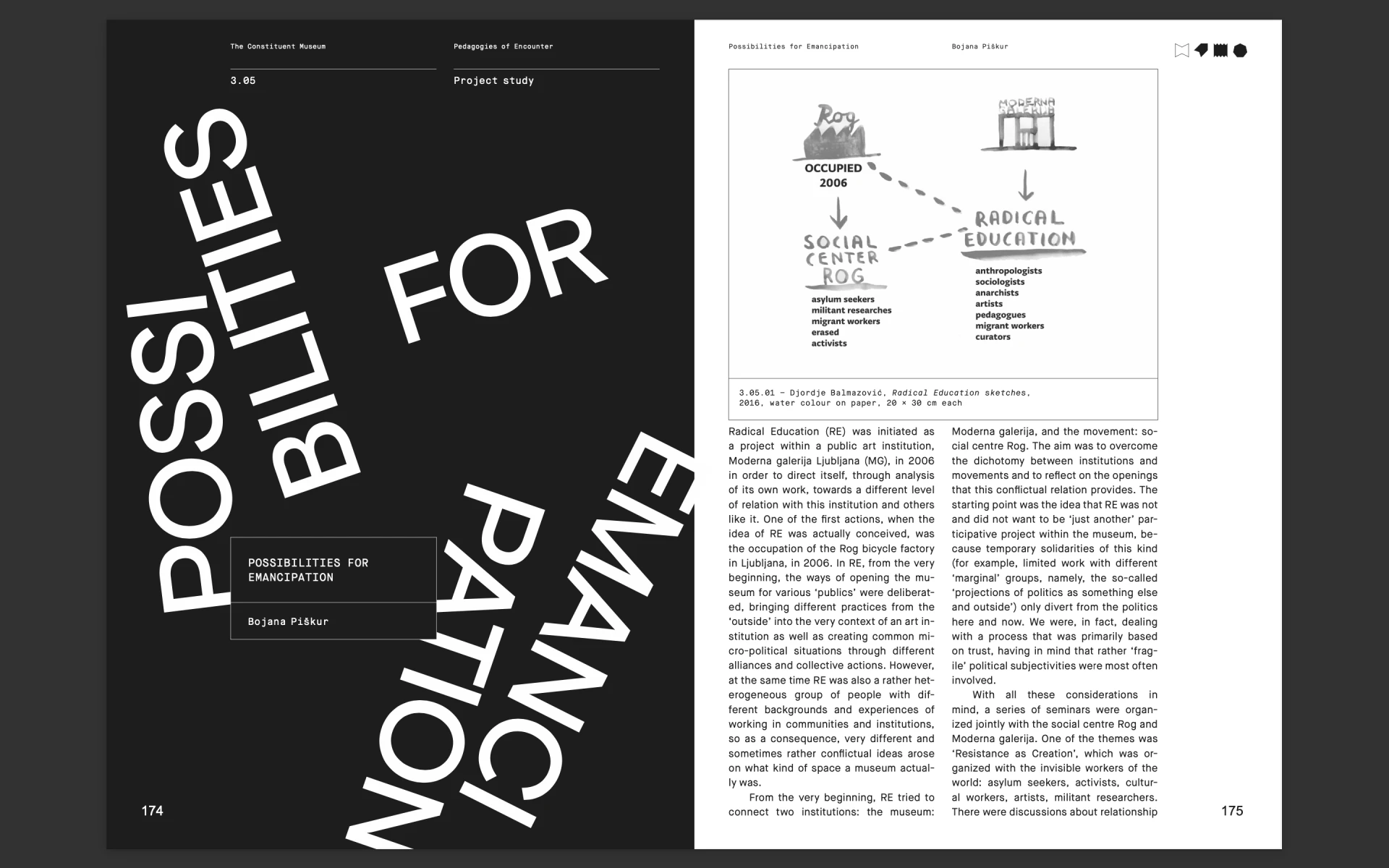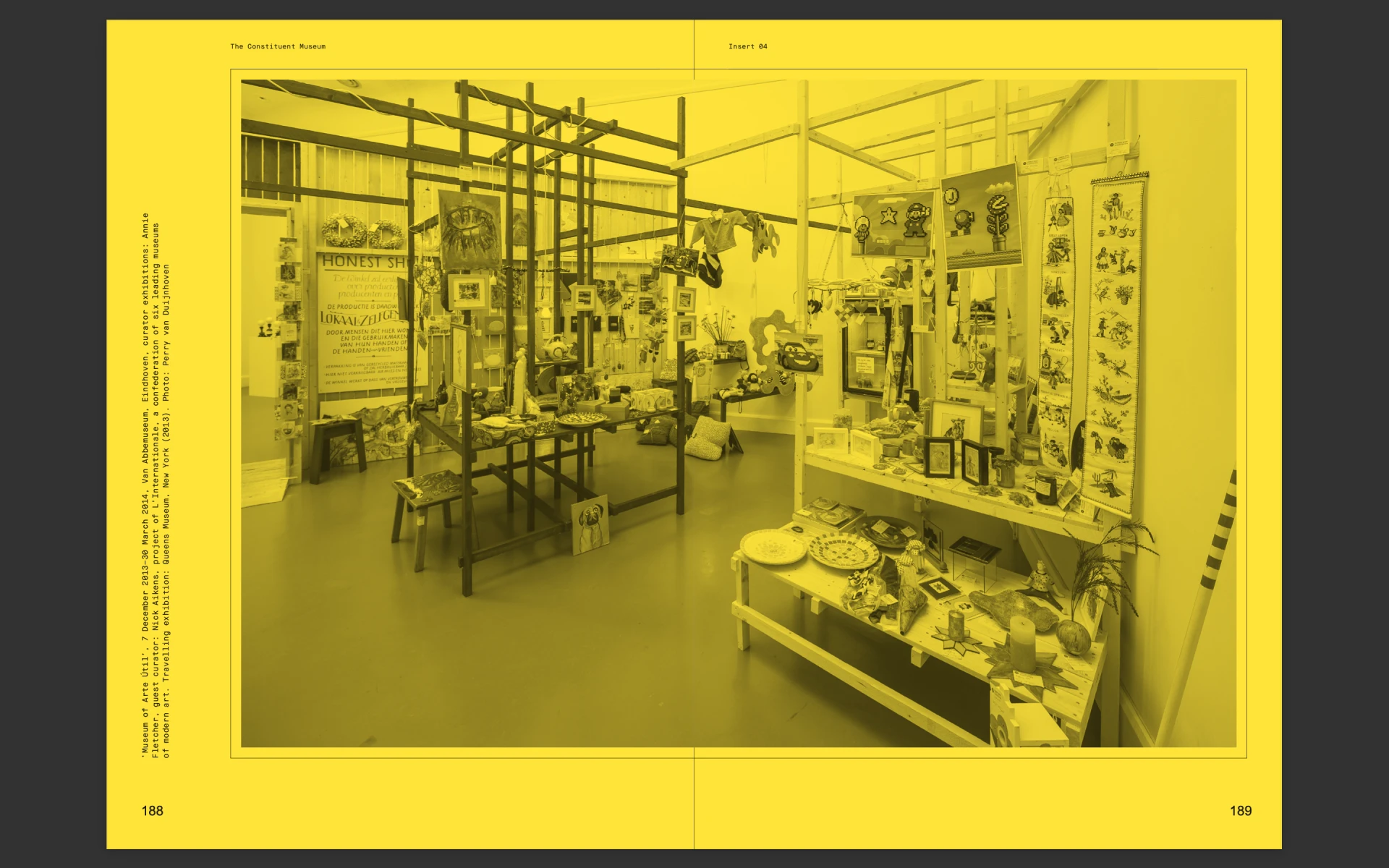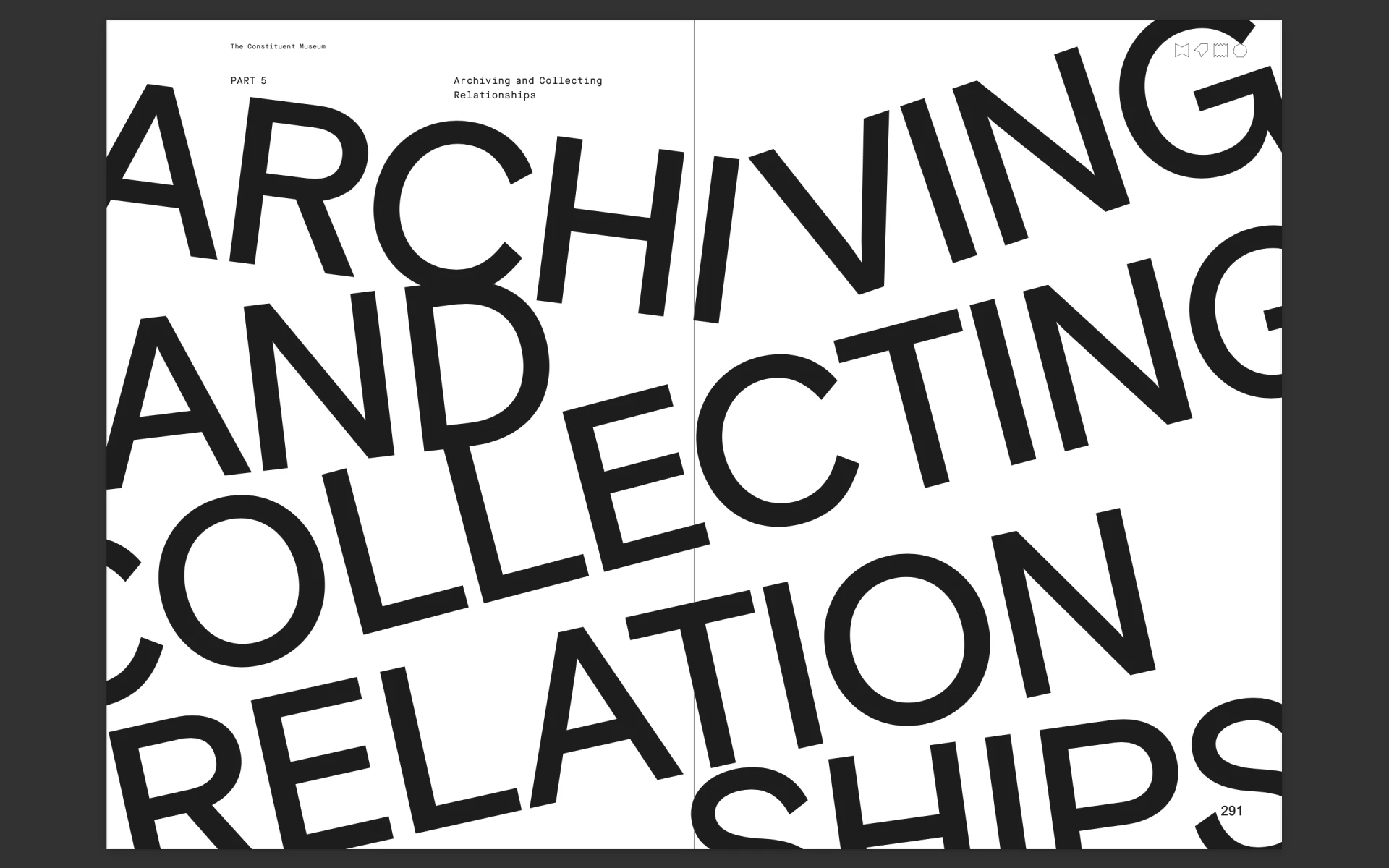The Constituent Museum. Constellations of Knowledge, Politics and Mediation
Edited by John Byrne, Elinor Morgan, November Paynter, Aida Sánchez de Serdio, and Adela Železnik
Graphic Design: George & Harrison
Published by L'Internationale and Valiz
Contents
-
1.INTRODUCTION
-
2.THE CONSTITUENT MUSEUM – Editors’ Introduction
-
3.THE RAINBOW WRASSE
-
4.PART 1: BECOMING CONSTITUENT
-
5.BECOMING CONSTITUENT – Introduction
-
6.THE REST IS MISSING – On Constituencies as a Matricial Notion for New Institutions of the Commons
-
7.NEGOTIATING INSTITUTIONS
-
8.MIDDLESBROUGH’S NEW COMMUNITIES
-
9.NEW COMMUNITIES OF MIGRANTS
-
10.UNTIMELY NOTES ON ‘THE NEW ABDUCTION OF EUROPE’
-
11.PART 2: ARCHITECTURES OF USE
-
12.ARCHITECTURES OF USE – Introduction
-
13.ARCHITECTURES OF ENCOUNTER, ATTENTION AND CARE – Towards Responsible Worlding Action
-
14.NEGOTIATING JEOPARDY – Towards a Constituent Architecture of Use
-
15.TENSTA MUSEUM L’INTERNATIONALE
-
16.THE USES OF ART LAB @ LIVERPOOL JOHN MOORES UNIVERSITY
-
17.HONEST SHOP
-
18.SEED JOURNEY
-
19.MUSEUM SOLIDARITY LOBBY
-
20.PART 3: PEDAGOGIES OF ENCOUNTER
-
21.PEDAGOGIES OF ENCOUNTER – Introduction
-
22.‘GIVE HER THE TOOLS, SHE WILL KNOW WHAT TO DO WITH THEM!’ – Some Thoughts about Learning Together
-
23.A CONSTITUENT EDUCATION
-
24.ANOTHER ROAD MAP SCHOOL FOR ARTS EDUCATION
-
25.POSSIBILITIES FOR EMANCIPATION
-
26.‘REALLY USEFUL KNOWLEDGE’
-
27.‘REALLY USEFUL KNOWLEDGE’ AND INSTITUTIONAL LEARNING
-
28.BETWEEN ACTS: INFLUENCE, NEGOTIATE, ENCOUNTER, INSTIGATE, NARRATE – Re-writing the Relations Between Art and Situated Knowledge Found in Times of Crisis
-
29.TOWARDS A COORDINATION ETHIC
-
30.CLOSE THE FOLDING SCREEN BEFORE LENIN ESCAPES – Somateca and the Closet
-
31.A GREEK CHOIR TEARING THE CANVAS OF PUBLIC HEALTHCARE
-
32.PART 4: DISTRIBUTING OWNERSHIP
-
33.DISTRIBUTING OWNERSHIP – Introduction
-
34.DEMOCRATIC INSTITUTIONS VERSUS CULTURE WARS
-
35.PRESERVING PRECARIOUSNESS, QUEERING DEBT
-
36.NOTES ON FRIENDSHIP
-
37.SOLIDARITY
-
38.ANTAGONISM
-
39.‘VSAK ČLOVEK JE KUSTOS!/JEDER MENSCH IST EIN KURATOR!’ – Moderna galerija, Ljubljana, 16 June–30 September 2007
-
40.LODGERS AT M HKA
-
41.A MODEL FOR A CONSTITUENT MUSEUM – MOCA Toronto Canada
-
42.NEW LINTHORPE
-
43.PART 5: ARCHIVING AND COLLECTING RELATIONSHIPS
-
44.ARCHIVING AND COLLECTING RELATIONSHIPS – Introduction
-
45.REVISITING AND RECONSTITUTING NETWORKS FROM JAPAN TO BEIRUT TO CHILE
-
46.ARCHIVES IN USE – A Laboratory of Political Imagination for the Present
-
47.REALITIES OF THE UNDERCOMMONS – About the Work of Making, Unmaking and Remaking Organizations
-
48.VULNERABILITIES AND SHIFTING MEANINGS OF CITIZENSHIP
-
49.DATA ASYMMETRY
-
50.GRAPH COMMONS
-
51.OPEN SOURCE PROTOTYPES
-
52.THE SALT OFFICE OF USEFUL ART
-
53.APPENDIX
-
54.Contributors
-
55.Index of Names
-
56.Index of Works of Art, Exhibitions, Projects, Organizations
-
57.Acknowledgements
-
58.Colophon
What would happen if museums put relationships at the centre of their operations? This question inspires this publication, which offers a diverse, rigorous, and experimental analysis of what is commonly known as education, mediation or interpretation within museum institutions. It regards the visitor not as a passive receiver of predefined content, but as an active member of a constituent body, whom it facilitates, provokes, inspires and learns from. Moving beyond the practice of mediation as such, the publication situates constituent practices of collaboration and co-production within the existing social-political (neoliberal) context. It does this to reimagine and affect both the physical and organizational structures of museums and galleries.
Understanding the challenges of a constituent practice in an integral, interdisciplinary manner is what this publication aspires to. This is explored by placing the museum's constituents – museum professionals, active audience/co-curator, local and political agencies, operational structures and contexts – at the centre of the museum organization and looking at how their positions in society start to shift and change.
Issues that are addressed: ownership and power dynamics, collective pedagogy, pedagogy of encounter, collaboration, assent, dissent and consent, co-labour and co-curation (economies of exchange), precarity, and working with interns, archives and how to activate them, broadcasting, digital cultivation, crowdsourcing, and many other topics.
Editors: John Byrne (Lead Editor, Liverpool John Moores University, Liverpool), Elinor Morgan (MIMA, Middlesbrough), November Paynter (MOCA, Toronto), Aida Sánchez de Serdio (UOC, Barcelona), and Adela Železnik (MG+msum, Ljubljana).
Contributors: Azra Akšamija, Alberto Altés Arlandis, Burak Arikan, James Beighton, Manuel Borja-Villel, Sara Buraya, John Byrne, Jesús Carrillo, Alejandro Cevallos Narváez, Céline Condorelli, Sean Dockray, Özge Ersoy, Carmen Esbrí, Oriol Fontdevila, Amy Franceschini, Janna Graham, Nav Haq, Yaiza Hernández Velázquez, Emily Hesse, John Hill, Alistair Hudson, Adelita Husni-Bey, Kristine Khouri, Nora Landkammer, Maria Lind, Isabell Lorey, Francis McKee, Elinor Morgan, Paula Moliner, November Paynter, Manuela Pedrón Nicolau, Elliot Perkins, Bojana Piškur, Tjaša Pogačar Podgornik, Alan Quireyns, RedCSur, Rasha Salti, Francesco Salvini / pantxo ramas, Raúl Sánchez Cedillo, Aida Sánchez de Serdio, Somateca, Igor Španjol, Nora Sternfeld, Subtramas, Tiziana Terranova, Piet Van Hecke, Onur Yıldız, and Adela Železnik.
2018, Valiz with L'internationale | supported by the Culture Programme of the European Union | partners: Liverpool John Moores University, Middlesbrough Institute of Modern Art | paperback | 384 pp. | English | ISBN 978-94-92095-42-8 | Design by George & Harrison. To purchase the book, please follow this link to the website of our publisher, Valiz.
